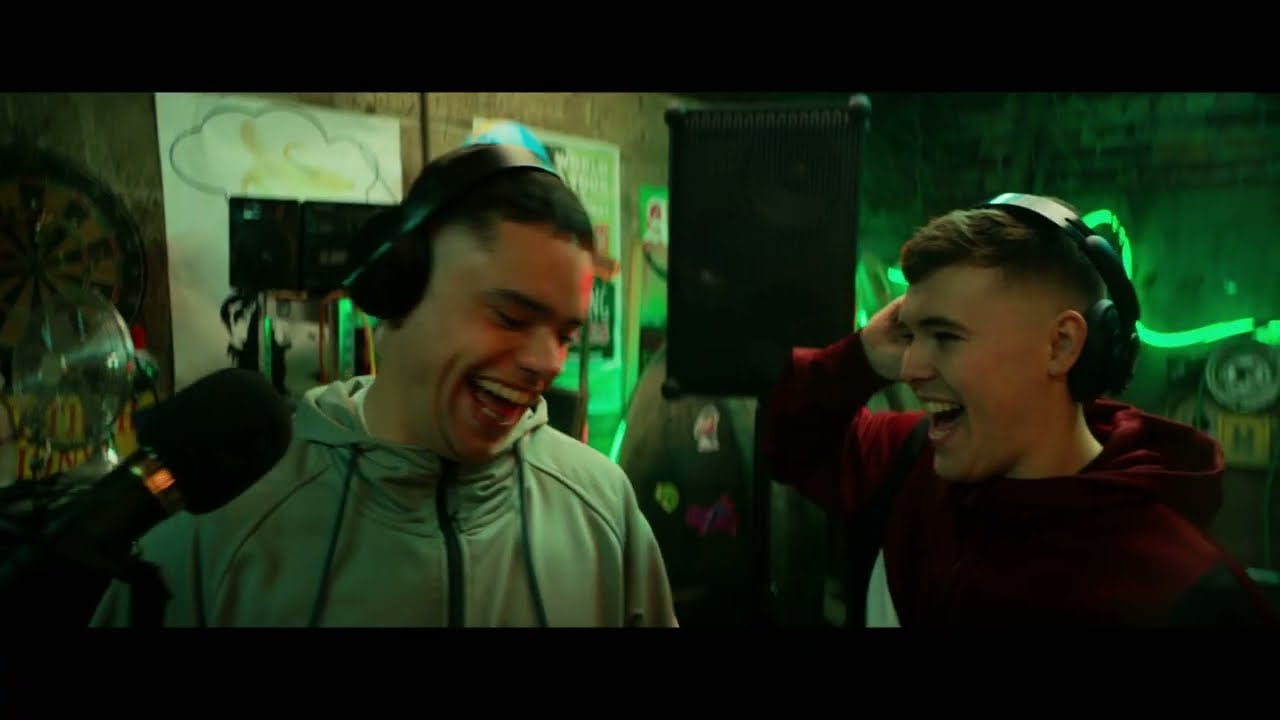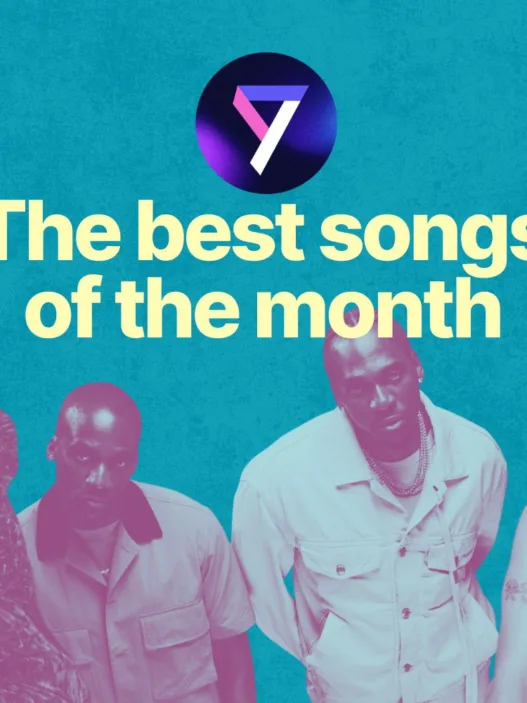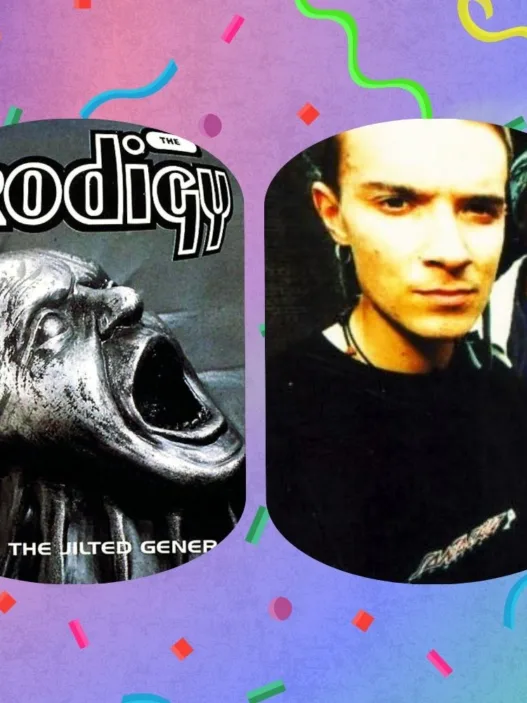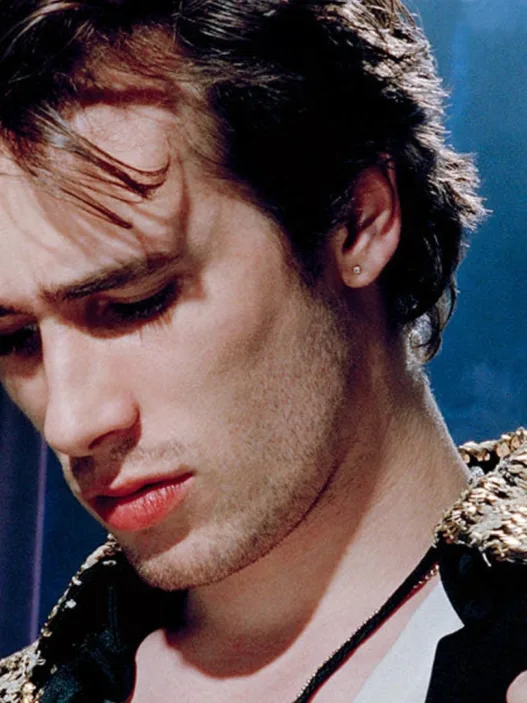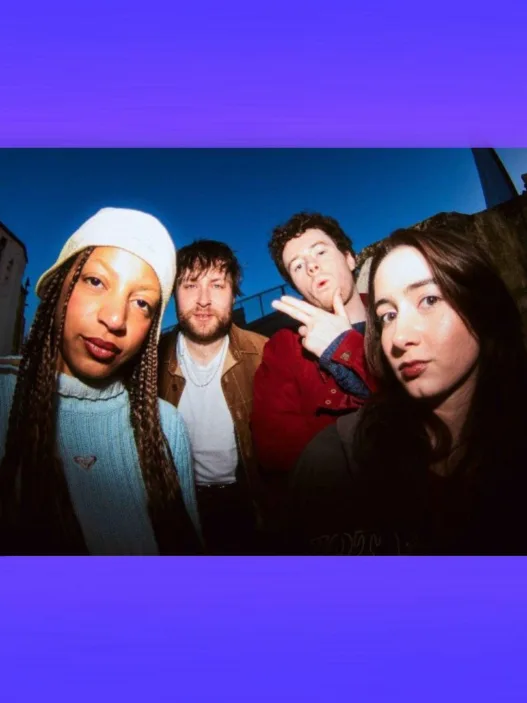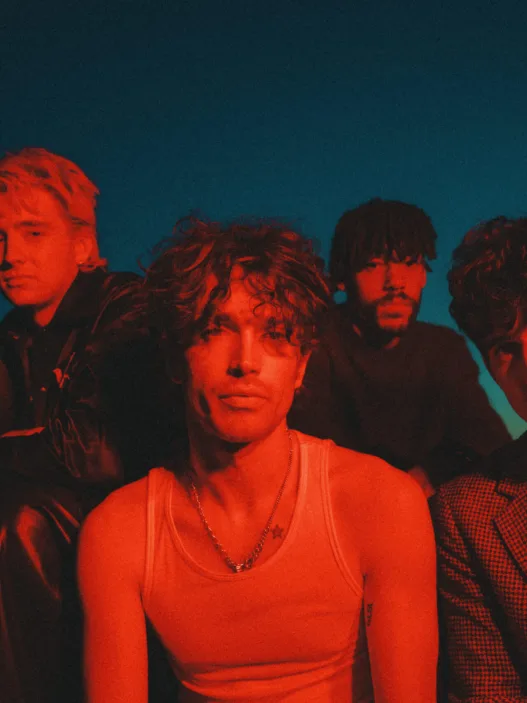Is it an exaggeration to say that Kneecap have inspired a new generation of Irish speakers?
Well before there were murmurs of the recently released album Fine Art, or Kneecap, the film based on their lives, it was clear anytime an audience gathered in front of the West Belfast Gaeilge rap trio, there was alchemy present that produced the the rare outcome of a load of young Irish people screaming the words in Irish back to the band.
As Irish culture becomes more prominent in art, where the likes of Lankum, The Mary Wallopers, John Francis Flynn and more have shone an international light on the Irish music tradition, Kneecap by contrast, have asserted themselves into the modern culture of hip-hop, using the Irish language, reflecting an altogether grimier modern existence.
You might hear the current crop Irish folkies sing an old song about a lover scorned swinging on a gallow’s pole, but you won’t necessarily hear them exploring the prominence of taking, or selling ketamine or coke every weekend.
I have been following the adventures of Kneecap since 2018, and they have attracted headlines ever since for their confrontational escapades which more often than not, have been aimed at British rule in the North of Ireland, whether that’s flashing buttocks at a venue that Prince William was in the previous night, unveiling murals that have angered loyalists, or being banned by RTÉ Raidió na Gaeltachta (RnaG) for drug references in their songs.

Some of this makes it into the exhilarating feature length film Kneecap, ostensibly an origin story of the band, writ large with exaggerated versions of true life events, and almost entirely in Irish.
That Kneecap was announced last week as the Irish pick for the Oscars, adding to the fact it was the first Irish language film shown at Sundance, and was widely praised, is impressive. That it is the Irish language film to open with more screens than any other in the country ever, is moreso.
The whipsmart film, directed by West Belfast-based Englishman Rich Peppiatt, on the surface is Straight Outta Belfast-style tale of three downtrodden musicians, who are nobody until they come somebody.
And as the film makes clear from the first scene, while every story about Belfast focuses on the Troubles and the IRA, Kneecap leads with the idea of Ceasefire Babies, who have troubles of their own, through the intergenerational trauma handed down to the current generation.
Selling drugs at a local rave
When we meet Móglaí Bap (Naoise Ó Cairealláin) and Mo Chara (Liam Óg Ó Hannaidh) they are selling drugs at a local rave, living in the reputational shadow of Móglaí Bap’s father, played by Michael Fassbender, a member of the Republican brotherhood, who is still fighting the old cause (even if it’s not necessarily fighting him back), while DJ Próvaí (JJ O Dochartaigh) is a schoolteacher, dealing with outdated Irish textbooks more concerned with shovelling sods than representing modern life.

When the trio meet by happen-stance, that’s when the music starts to get made, and starts to inspire the young generation, and the film makes a thrilling use of the band’s nascent lyrics in an animated handwritten font as they perform and work out their songs seemingly in real time.
The band all equip themselves superbly in terms of acting and comic timing, particularly Mo Chara (Liam Óg Ó Hannaidh), and their rapport is clear throughout, especially when they are performing. The film is filled with performances of their hi-octane early hits and their current rap bangers as heard on the album Fine Art, along with songs that have a local grounding from the likes of Bicep and Orbital.

The Identity and Language Act 2022 is important to this film
Bolstering Kneecap’s notorious rise in the film is the parallel of the campaign in the North for the establishment of the Identity and Language Act 2022, thereby, officially recognising the Irish language, and its right to exist, in law (this also happened in real life), a campaign in which DJ Próvaí’s partner Caitlin (Fionnuala Flaherty) is actively involved in the film.
The growing popularity of Kneecap’s more incendiary use of drug-referencing language is friction used by those against the language campaign, while their renown for selling drugs attracts the ire of a local paramilitary group Radical Republicans Against Drugs (R-RAD) – “how do you pronounce that? With a stutter?,” asks one of Kneecap.
The actions of Peeler Detective Ellis (Josie Walker) hellbent on taking Kneecap down adds a touch of pantomime villain to the movie, and some buddy movie scenes dip too readily into well-worn clichés.
The Bobby Sandals of yoga
Fassbender’s turn as the Republican fighting a largely one-sided war of the past, spouting the slogan “every word of Irish spoken is a bullet fired for the cause of Irish independence,” while masquerading as the Bobby Sandals of yoga teachers, gives the film a fine intergenerational contrast in terms of cause. The effect of his absence on the family is also explored through Dolores, the housebound mother of Móglaí (Simone Kirby).
Scenes in which the band mix too many drugs together are over-relied on for comic effect, but a scene of three claymation-animated high couch potato band members offers an insightful take on artists’ reliance on touring to make a living over streaming services, while also introducing the deliberately erroneous Macguffin that radio station plays make bands money.
The subplots allow the film to underscore the moral hypocrisy of the local paramilitary group who will quickly deign in their noble cause to make money and take control, while the romance between Mo Chara’s and the unionist Georgia (Jessica Reynolds) explore the abrasive nature of attraction in a dual Catholic and Protestant population as well as a nuanced probing of chanted slogans.
There’s a great scene when Georgia, having seen the band shout ‘BRITS OUT’ as the chorus of one of their songs, confronts Mo Chara about his chant, for him to explain the Brits in that context means the British state. Pop songs are not always to be taken literally.
Kneecap is a film about language not the band
Language has meaning, and (free) speech and expression has a power that can snowball into a celebration of identity, grow a cultural movement and threaten governments, whether you are singing about MDMA or misery.
Ultimately the story of Kneecap is about keeping a language alive, and living, and reclaiming it for a modern world – a surprisingly nuanced take for a pop culture biopic.
Kneecap is a smart caper of a movie – a story of substance – a romp around West Belfast with a baggie, a soundtrack pumping riotous tunes, and a band with a wickedly funny mother tongue subverting the mirage of institutional power around them.
Kneecap is out in cinemas in Ireland today – August 8th 2024.

Niall Byrne is the founder of the most-influential Irish music site Nialler9, where he has been writing about music since 2005 . He is the co-host of the Nialler9 Podcast and has written for the Irish Times, Irish Independent, Cara Magazine, Sunday Times, Totally Dublin, Red Bull and more. Niall is a DJ, founder of Lumo Club, club promoter, event curator and producer of gigs, listening parties & events in Dublin.


